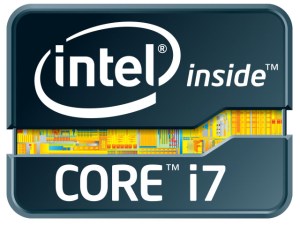 Intel introduced a new processor architecture at this year’s Consumer Electronics Show dubbed Sandy Bridge, the second generation of the company’s Core-i series CPUs. The new chips sport an integrated graphics processor that is powerful enough to compete with mid-range video cards, eliminating the need for consumers to also invest in a pricey display adapter for their new computers. Unfortunately for Intel, a design flaw has led to a halt in shipments and a recall of affected products, a situation which the company reports will cost around $1 billion to correct, according to a press release.
Intel introduced a new processor architecture at this year’s Consumer Electronics Show dubbed Sandy Bridge, the second generation of the company’s Core-i series CPUs. The new chips sport an integrated graphics processor that is powerful enough to compete with mid-range video cards, eliminating the need for consumers to also invest in a pricey display adapter for their new computers. Unfortunately for Intel, a design flaw has led to a halt in shipments and a recall of affected products, a situation which the company reports will cost around $1 billion to correct, according to a press release.
The news surfaced earlier this week when Intel revealed that the CPU is affected by a flaw in the chipset. Now computer manufacturers and distributors are scrambling to address the situation before it spirals out of control. Hewlett-Packard reported that sales of select machines would be “impacted” by the flaws, while Dell revealed that four of its PC models under the XPS, Vostro and Alienware brands were affected, BusinessWeek reports. Component manufacturers are responding as well. Gigabyte and MSI have both stopped sales of affected products while Asus is working things out with its distrubutors, according to PC & Tech Authority.
Intel’s press release points to a flaw in the chipset’s SATA ports — the inputs to which hard drives and optical drives are connected — which causes them to degrade over time, “potentially impacting the performance or functionality of SATA-linked devices such as hard disk drives and DVD-drives.” With the issue identified, manufacturing has already begun on fresh CPUs.
Engadget managed to get its hands on an Intel customer service chat log, which indicates that the product recall only affects “some desktop boards based on [the] Intel P67 chipset.” The P67 chipset will typically be found on higher-end systems, as the integrated graphics processor is disabled and a proper video adapter is required. Chips with an integrated GPU run on the H67 chipset, with the downside for power gamers being that they don’t support overclocking.
No matter how you slice it, this is a sticky situation for Intel. The company fortunately seems to be responding quickly and decisively, and affected customers will hopefully not be waiting too long for the situation to be corrected.


